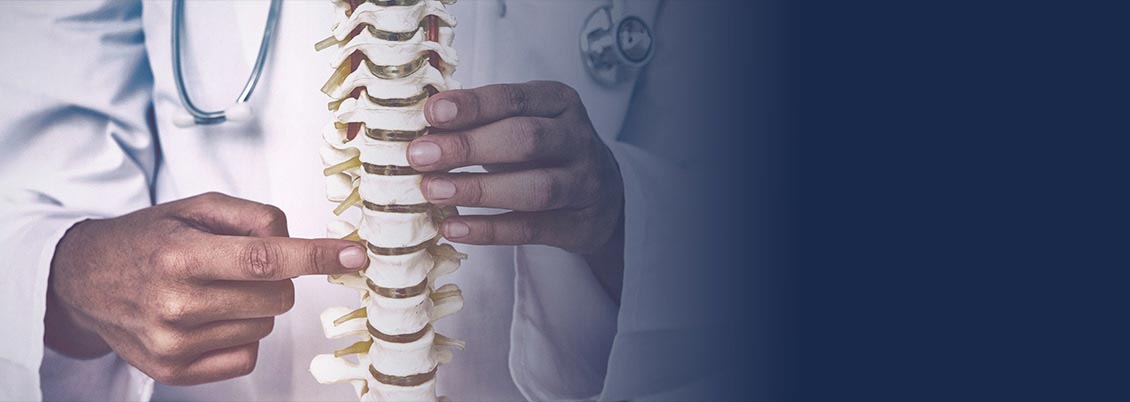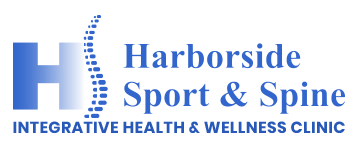Herniated Discs Diagnosis and Treatment in Jersey City, NJ
A herniated disc is a common problem of the lower back that causes pain, tingling, muscular weakness, and cervical disc challenges. Our board-certified Dr. David Sylvester, DC, at Harborside Sport & Spine, evaluates pain, muscle reflexes, feeling, and strength, with additional testing. If you are suffering from herniated discs, come to us for a proper diagnosis and treatment. For more information, contact us or book an appointment online. We serve patients from Jersey City, NJ, and surrounding areas.




Table of Contents:
What are the symptoms of herniated discs?
What causes a herniated disc?
Do herniated discs heal on their own?
How do you fix herniated discs?
Herniated discs can cause a range of symptoms, primarily pain, which varies based on the disc’s location. When a disc herniates in the lower back, it often leads to pain that spreads to other parts of the body, particularly through the thigh and buttocks.
This pain can become more intense with certain movements, such as coughing or sneezing. In cases where the herniation occurs in the neck, individuals may experience pain spreading down the arm and into the shoulder. Alongside pain, symptoms may include numbness or tingling in the affected limb muscle weakness, or difficulty maintaining balance.
These symptoms can significantly have adverse health outcomes in all aspects of an individual’s health, causing difficulties with day-to-day activities. Specialists at Harborside Sport & Spine focus on a personalized approach to care.
By accurately diagnosing the presence and severity of a herniated disc through detailed patient history and physical examinations, they can tailor a treatment plan that addresses these specific symptoms. The goal is to not only alleviate pain but also restore function and prevent further complications.
Treatment options may include physical therapy, which helps strengthen the muscles around the spine, improve flexibility, and reduce pressure on the nerves. Patients can also be guided on lifestyle changes to avoid aggravating the condition, ensuring a comprehensive approach to recovery.
Several factors may be responsible for a herniated disc. Often, it is a combination of factors including aging, physical stress, and family history. Over time, the spinal discs lose hydration and elasticity, making them more susceptible to tearing even under minor strain.
Activities that involve repetitive or sudden movements, such as twisting, bending, or lifting, can increase the risk of a disc slipping out of place. Poor posture may also contribute to disc herniation by placing excessive pressure on the lower back. Individuals may have an inherited vulnerability to disc issues, making them more likely to experience herniations.
Identifying the underlying causes of a herniated disc is crucial to developing an effective treatment strategy. A comprehensive diagnostic process is used, including physical exams and imaging tests, to identify the specific factors contributing to each patient’s condition. This enables the creation of a targeted treatment plan that not only addresses the symptoms but also tackles the root cause of the herniation.
Whether or not herniated discs heal on their own varies on a case-by-case basis. Some individuals with herniated discs experience significant improvement over time, particularly within the first six months. The body’s natural healing processes can often reduce inflammation and irritation leading to a decrease in symptoms such as pain, numbness, and weakness.
During this period, conservative treatments like physical therapy to strengthen the surrounding muscles, and modifications to daily activities to avoid aggravating the condition can be highly beneficial. These approaches focus on supporting the body’s healing while minimizing the impact of symptoms on the patient’s life. It’s important to seek care for herniated discs, as some of the symptoms may resolve more easily than others.
The initial approach to treating a herniated disc typically involves conservative, non-surgical methods aimed at relieving pain and promoting healing. These may include a combination of rest, anti-inflammatory medications, physical therapy, and more. Injections may be incorporated, particularly after frontline treatments haven’t been successful.
When these conservative measures do not provide sufficient relief, or if the herniated disc results in severe or worsening symptoms, surgical options may be considered. The type of surgery recommended depends on the location and severity of the herniation, as well as the patient’s overall health and lifestyle.
Herniated disc diagnosis and treatment are available at Harborside Sport & Spine. For more information, contact us or book an appointment online. We serve patients from Jersey City NJ, Hoboken NJ, Weehawken NJ, West New York NJ, Guttenberg NJ, Secaucus NJ, Harrison NJ, Kearny NJ, Newark NJ, Belleville NJ, Lyndhurst NJ, East Orange NJ, and Elizabeth NJ.

Chiropractic and Physical Therapy Services
▸ Chiropractic
▸ Physical Therapy
▸ Massage Therapy
▸ Acupuncture
▸ Spinal Decompression
▸ Prenatal Chiropractor
▸ Ear Infections
▸ Foot Pain
▸ Headaches
▸ Scoliosis
▸ Slipped Disc
▸ Sprained Ankles
▸ Stress
▸ Frozen Shoulder
▸ Osteoporosis
▸ Shoulder Pain






